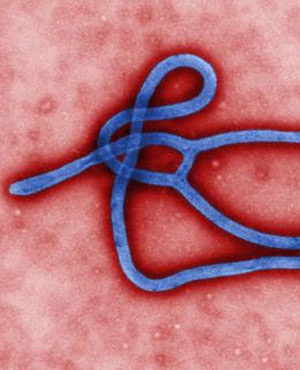
Cape Town – The National Department of Health is monitoring all ports of entry into South Africa and including airports, Airports Company South Africa spokesperson, Unathi Batyashe-Fillis said.
This follows concerns that the deadly Ebola virus is spreading beyond West Africa and is at risk of becoming the latest disease to be spread by international air travel.
The deadliest outbreak of Ebola to date has been exacerbated by the death of a 40-year-old Liberian Finance Ministry employee Patrick Sawyer after he was able to board a flight from Liberia to Nigeria while clearly displaying various viral haemorrhagic fever symptoms.
Authorities say Saywer, who boarded a flight in Liberia, had a stopover in Ghana, changed planes in Togo, and then arrived in Nigeria - died a few days later from Ebola. Sawyer was said to be vomiting and experiencing diarrhoea on at least one of his flights.
As a result tighter screening of passengers in and from West Africa are taking place.
International Civil Aviation Organization Secretary General Raymond Benjamin said, "Until now (the virus) had not impacted commercial aviation, but now we're affected."
The Liberian government has also closed most of the West African nation's border crossings and Nigerian officials have also started screening passengers arriving from foreign countries for symptoms.
Togo-based airline ASKY announced the suspension of flights to and from the capitals of Liberia and Sierra Leone, both hit by an outbreak of Ebola virus.
The National Institute for Communicable Diseases (NICD) said on its website that given the frequency of travel between southern and western African countries, risk of Ebola being imported into South Africa is possible, “but overall it is low”.
Currently there are no special WHO precautions or directives for commercial flights, passengers or crew departing on flights bound for or returning to Guinea, Liberia, or Sierra Leone – other than a yellow fever vaccination medical certificate.
“We are confident that the Port Health officials based at our airports are monitoring the situation and processes are in place,” said Batyashe-Fillis.
The department of health has advised its officials to strengthen its surveillance for viral haemorrhagic fevers, particularly Ebola.
“There needs to be a high index of suspicion for viral haemorrhagic feversfor persons who have travelled to Guinea, Liberia, Sierra Leone, and surrounding countries, including: malaria, dengue fever, Lassa fever and other endemic diseases (e.g. typhoid fever).”
If necessary health workers have been instructed to do the appropriate tests and institute appropriate therapy as a matter of urgency.
Ebola kills up to 90% of those it infects.
Here's what travellers need to know about the Ebola Virus as detailed by WHO
- Ebola virus disease (EVD), formerly known as Ebola haemorrhagic fever, is a severe, often fatal illness in humans.
- EVD outbreaks have a case fatality rate of up to 90%.
- EVD outbreaks occur primarily in remote villages in Central and West Africa, near tropical rainforests.
- The virus is transmitted to people from wild animals and spreads in the human population through human-to-human transmission. The disease is not spread through the air like the flu virus but through bodily fluids.
- Fruit bats of the Pteropodidae family are considered to be the natural host of the Ebola virus.
- Severely ill patients require intensive supportive care. No licensed specific treatment or vaccine is available for use in people or animals.
- Containing the virus is extremely important as a single case can quickly turn into an epidemic.
- Symptoms will develop about 21 days after infection and include fever, headache, muscle pain and weakness.
- Other symptoms may involve a rash, nausea and vomiting, abdominal pain and diarrhea. Internal/external bleeding occurs in some cases, which can lead to shock and massive hemorrhage.
- Travellers heading to this area should keep abreast of where the affected areas are and avoid direct contact with people who are sick.
- Administer strict hygiene conditions by regularly washing hands and avoiding contact with infected humans, if necessary were protective clothing and gloves.




 Publications
Publications
 Partners
Partners










